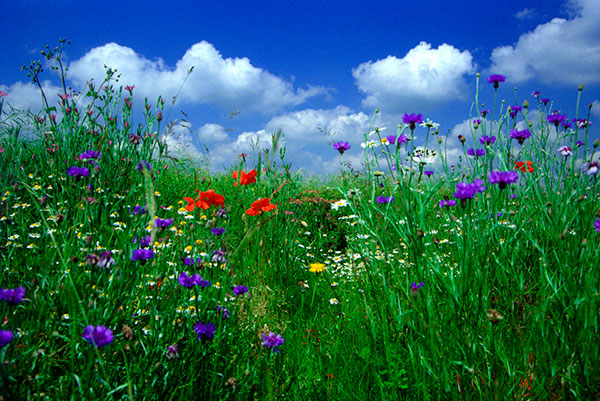People are being encouraged to ‘un-garden’ this bank holiday weekend by leaving some areas of their garden wild and help protect wildlife habitats.
The campaign, called ‘Leave it Wild’, is being run jointly by Jordans Cereals and The Wildlife Trusts, to coincide with the UN’s International Biodiversity Day (22 May), which raises awareness of global biodiversity depletion.
It comes after new research showed Brits are weeding and pruning more than ever during lockdown in a bid for garden ‘perfection’.
A survey of 2,000 adults, commissioned by Jordans, found that half (49 per cent) of those asked are weeding more than usual, 30 per cent spending extra time mowing the lawn and 21 per cent have trimmed hedges – all of which are important homes for garden wildlife.

Chief executive of The Wildlife Trusts, Craig Bennett, said: “The UK is one of the most nature-depleted places in the world and yet we know how important it is, as so many people during lockdown are seeking comfort in nature, connecting to wild places and wildlife close to home.
“That’s why we’re keen to support Jordans’ #LeaveItWild; by leaving a corner of your garden a bit messy, not mowing the lawn or growing wildflowers in window box you can really help to provide food, shelter and stopping places for butterflies, bird and bees where you live – and by acting together we can start to bring wildlife back.”
Mia Hartwell, sustainability manager at Jordans Cereals, said: “Over-gardening can actually do more harm than good, so Jordans and The Wildlife Trusts are encouraging people to #LeaveitWild and follow the lead of Jordans farmers, who commit 10 per cent or more of their land for wildlife.”
The top ‘Leave it Wild’ tips include:
1. Only cut the grass once a month with a ‘Mohican’ cut style trim.
2. Forget five-star hotels, build your bugs a hostel from old loo rolls, sticks and dry leaves.
3. Leave pollinator-friendly plants such as dandelions, nettles, daisies and buttercups to grow.
4. Cut a hole in your fence for hedgehogs and other small animals to get through.
5. Plant wildflowers or throw a bee bomb into your garden patch.
6. Get rid of any artificial grass, which creates a desert for wildlife.
Biodiversity for planetary and human health
The news comes amid a growing awareness of the role of biodiversity and protection of wildlife in relation to human health, as scientists highlight how an erosion of natural habitats can potentially increase the risk of transmission of novel viruses, such as Covid-19.
Scientists writing in the Intergovernmental Science-Policy Platform on Biodiversity and Ecosystem Services (IPBES), said: “We should adopt a ‘One Health’ approach at all levels of decision-making – from the global to the most local – recognizing the complex interconnections among the health of people, animals, plants and our shared environment,” they wrote.
“We can build back better and emerge from the current crisis stronger and more resilient than ever – but to do so means choosing policies and actions that protect nature – so that nature can help to protect us.”
Separately, the government’s Treasury has commissioned a report on the economic impact of biodiversity loss, stating that the “health of our planet plays an important role in the emergence and spread of infectious diseases”.
Responding to the review, the Soil Association said biodiversity loss is intimately related to climate change, while land-use change, through things like intensive farming and deforestation, is affecting the future of both.
Head of food and health policy at the Soil Association, Rob Percival, said: “It is clear from this report and this pandemic that compromising nature also compromises our economies, and we must ensure that our recovery from the crisis will also support the natural world to recover.”















0 Comments